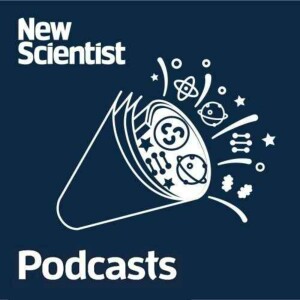Recorded live online for New Scientist subscribers, in this holiday special the team takes you through their stand out moments of the year, the funniest stories to hit the headlines, and their hopes for 2023 - and they answer questions from the audience too.
For stand-out highlights of 2022, the team discusses Deepmind and its transformative AI AlphaFold which predicted the structures of most known proteins. They celebrate the successes of the James Webb Space Telescope and a recent nuclear fusion experiment that has, for the first time ever, generated more power than it requires to run. They also chat about advances in organ transplants and the amazing discovery of ants which have evolved the ability to treat the wounds of their nest mates.
For their funniest picks of the year, they highlight the story of a fish that evolved to stand up on land then thought “nah”, and went back to living in water. Then there’s the news of researchers who wanted to find out if covid-related loss of smell correlated with negative reviews of scented candles on Amazon. And they discuss North America’s invasion by alien earthworms.
After audience questions, the team looks to the future. From the scientific discoveries spurred on by the covid pandemic, to developments in quantum computing, new innovative ways of producing food in more environmentally friendly ways, advancements in gene replacement therapies and the future of space travel, they discuss the stories they’re most looking forward to next year.
On the panel are Rowan Hooper, Penny Sarchet, Alexandra Thompson, Anna Demming and Sam Wong. To read about these subjects and much more, you can subscribe to New Scientist magazine at newscientist.com.
Events and discount codes:
Climeworks: www.climeworks.com
Hosted on Acast. See acast.com/privacy for more information.
Learn more about your ad choices. Visit megaphone.fm/adchoices
More Episodes
Weekly: The truth behind the orca uprising; Earth enters uncharted territory; genetic treatments for unborn babies.
 2023-06-22
2023-06-22
Weekly: Claims that secret alien technology is held in the US; link between gut bacteria and intelligence; the parasite that makes ants live longer
 2023-06-15
2023-06-15
#199 Being Human: Lewis Dartnell on how our biology shapes our actions
 2023-06-13
2023-06-13
#198 Giant: An opera about the legacy of the ‘Irish giant’ Charles Byrne and the surgeon John Hunter
 2023-06-08
2023-06-08
#197 Ancient human Homo naledi had advanced culture; AI passes the world’s biggest Turing Test; climate change hits New York
 2023-06-08
2023-06-08
#196 Animal Liberation Now: Peter Singer on eating and living ethically
 2023-06-05
2023-06-05
#195 Breakthrough in suspended animation; treatment using stem cells from umbilical cord; moon dust threat
 2023-06-01
2023-06-01
#194 Rewilding special: a night in the beaver pen at the rewilded Knepp Estate
 2023-05-26
2023-05-26
#193 Drug that could cure obesity; world’s largest organism; octopus dreams; mood-enhancing non-alcoholic drink
 2023-05-25
2023-05-25
#192 Life-extending mutation; Kangaroo poo transplant for cows; irregular sleep linked to increased risk of death
 2023-05-18
2023-05-18
#191 Special episode: the most mind-bending concepts in science
 2023-05-11
2023-05-11
#190 Problems for lab-grown meat; do we need vitamin D supplements?; waking the sleeping Arctic ocean; fish sing for Eurovision
 2023-05-11
2023-05-11
#189 Spinal cord stimulation: bringing movement back to paralysed stroke survivors
 2023-05-04
2023-05-04
#188 Consciousness measured at point of death; the lifeform with seven genomes; impact of Covid on the gut
 2023-05-04
2023-05-04
#187 CultureLab: The Power of Trees with Peter Wohlleben
 2023-04-28
2023-04-28
#186 Private space company crashes on the moon; hypnotherapy as anaesthetic; record-breaking ocean warming; Rosalind Franklin and DNA
 2023-04-27
2023-04-27
#185 CultureLab: Cosmo Sheldrake on capturing the sounds of our oceans
 2023-04-26
2023-04-26
#184 Dead Ringers TV review: Revolutionising the future of reproductive health
 2023-04-23
2023-04-23
#183 How To Blow Up A Pipeline film review: Is it time for more radical climate activism?
 2023-04-20
2023-04-20
#182 3D-printing inside living organisms; what ChatGPT means for human intelligence; why insects fly towards light; carbon storage in the oceans
 2023-04-20
2023-04-20
Create your
podcast in
minutes
- Full-featured podcast site
- Unlimited storage and bandwidth
- Comprehensive podcast stats
- Distribute to Apple Podcasts, Spotify, and more
- Make money with your podcast
It is Free
You may also like

New Scientist Escape Pod


- Privacy Policy
- Cookie Policy
- Terms of Use
- Consent Preferences
- Copyright © 2015-2024 Podbean.com




 iOS
iOS Android
Android